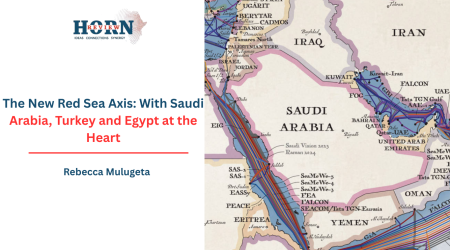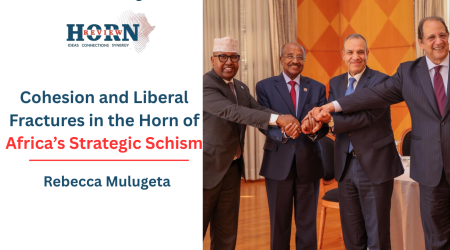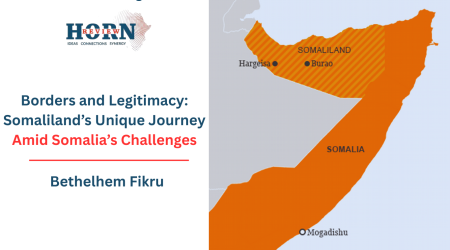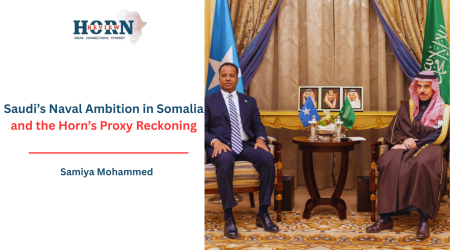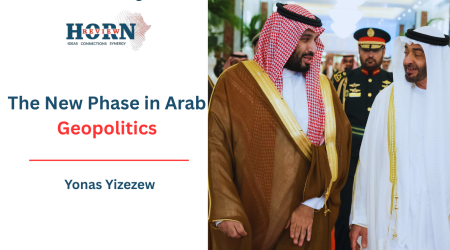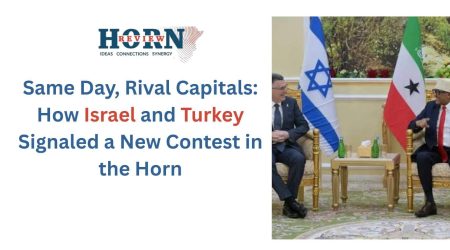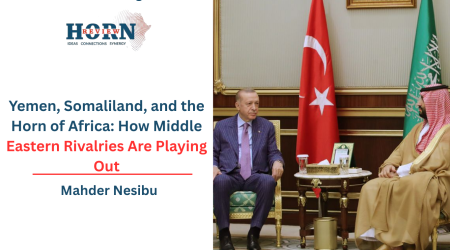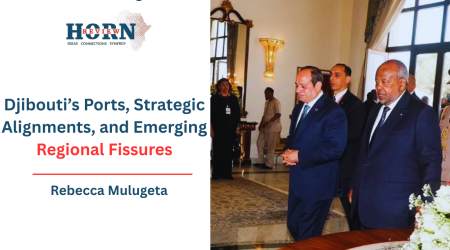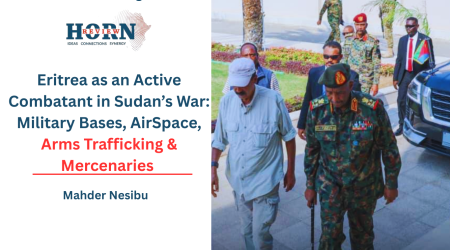
20
Nov
Terminal Fragility: Why a Unified Sudanese State is Beyond Salvage
The devastating conflict in Sudan represents far more than a conventional power struggle; it marks the terminal institutional collapse of the post-colonial state.
The violence that erupted in April 2023 is not a conventional civil war between reformable factions; it is rather the inevitable self-destruction of the ‘1956 State’ structure that was always defined by exclusion and violence. The goal of reconstituting a unified, functional Sudan is no longer a political challenge, but a historical improbability.
The “1956 state” refers to the centralized, riverain-dominated system inherited from colonial rule, which consistently favored a narrow elite while marginalizing the vast peripheries of Darfur, the Nuba Mountains, and the former South Sudan.
Rebirth of this state is now impossible due to three converging factors: a deep unresolved crisis of civic legitimacy dating back to independence; an unparalleled institutional failure stemming from security sector cannibalism; and fragmentation entrenched by external proxy support.
A State Built on Exclusion
Sudan’s foundational instability is rooted in the failure of the Republic established in 1956 to transcend colonial-era divisions and forge an inclusive national identity. Since independence, state power has been monopolized by a privileged Arabized Muslim elite who dominated the military and security agencies. This control translated into profound regional, political, and economic inequalities, driving perennial conflicts including two devastating civil wars, the first which led to secession in 2011, and the second the long-running conflict in Darfur.
At a conceptual level, this history translated into an unresolved crisis of identity and citizenship. While rulers saw the nation as an unproblematic sovereign inheritance, intellectuals from the peripheries recognized national identity as a work that should be in progress but isn’t. The imposed Arabized identity failed to create a civic consciousness, especially as centralized governments proved incapable of providing welfare to marginalized regions, thereby forfeiting any ideological legitimacy.
This structural failure established violence as the primary mechanism for political change, evidenced by Sudan enduring 18 coup attempts (the most in Africa) since 1956. Crucially, external peace efforts, such as the 2005 Comprehensive Peace Agreement (CPA), often exacerbated this trend by adopting a misguided Realpolitik that rewarded violent actors, such as incorporating the genocidal Janjaweed into the security apparatus, instead of addressing the democratic aspirations of the Sudanese people for freedom, peace, and justice. This failure to challenge the practitioners of violence directly laid the groundwork for the ultimate institutional self-implosion.
Institutional Cannibalism
The current conflict is unique because it erupted from within the heart of the repressive state apparatus itself. The war pits the Sudanese Armed Forces (SAF) against the Rapid Support Forces (RSF)—two security forces of almost equal strength and complementary capabilities. The state’s monopoly on legitimate force was deliberately shredded by its own components.
This “institutional cannibalism” was a structural contradiction engineered by the regime of Omar al-Bashir. The RSF was created in 2013 by co-opting the notorious Janjaweed militias, groups already guilty of genocide and war crimes in Darfur. The subsequent failure of Security Sector Reform following al-Bashir’s 2019 ouster created an irreconcilable dual state. RSF leader Mohamed Hamdan Dagalo (“Hemedti”) built a parallel, resource-financed empire based on gold-bearing territories in Darfur, rendering the RSF financially independent. When the political deadlock over a civilian government solidified in April 2023, the inevitable clash over this duality consumed the center.
The scale and nature of the atrocities committed make reconciliation and state rebirth almost unthinkable. Based on evidence, the United States determined that members of the SAF and RSF committed war crimes, while members of the RSF and allied militias committed crimes against humanity and ethnic cleansing. Most gravely, the determination has been made that the RSF and allied militias have committed genocide in Sudan. These acts including the systematic murder of men on an ethnic basis, widespread sexual violence, and targeted killings have created unbridgeable societal fissures.
The moral authority required to hold a nation together has been incinerated. The memory of ethnic cleansing renders a shared national identity politically and psychologically untenable for victimized populations. By systematically destroying civilian infrastructure and displacing over 12 million people, the factions have ensured that even if a future state structure emerges, it will lack the administrative capacity, moral legitimacy, and necessary workforce to function effectively.
The Economics of Fragmentation
The impossibility of centralized control is now formalized. In August 2025, Hemedti was sworn in as head of a parallel government in Nyala, South Darfur, an act that transforms battlefield authority into the trappings of territorial rule. This counter-state relies on autonomous access to gold revenues flowing through cross-border networks and intermediaries. With the central government paralyzed in Port Sudan, the RSF’s consolidation of a gold-rich western sphere of influence establishes a de facto sovereignty that structurally resists military defeat.
In addition, the competition for resource control extends beyond gold. The state’s economic collapse, following the loss of oil revenues to South Sudan in 2011, accelerated the search for new wealth sources, including the contested control over vital trade routes, agricultural land, and the strategic Port Sudan facilities. The war has thus devolved into a scramble over every viable economic asset, solidifying a ‘war economy’, which fuels localized fighting and makes the reconstitution of a single, centralized fiscal authority impossible.
Moreover, the terminal condition of the Sudanese state is not allowed to reach its conclusion because of sustained external geopolitical intervention. This stabilizes the conflict as a perpetual regional proxy war, ensuring neither side is starved of resources necessary to halt the violence.
The United Arab Emirates (UAE) acts as a critical lifeline for the RSF, facilitating the gold trade that fuels Hemedti’s financial independence. The UAE provides a stable financial pipeline and supplies military materiel, removing the pressure point of resource exhaustion that often forces peace. Conversely, Egypt is a key supporter of the SAF under General Abdel Fattah al-Burhan. Cairo’s strategic alignment is driven by a preference for a state under strong military control, a model mirroring its own, and a fear of instability along its 1,200 km shared border. Egypt seeks to quash the pro-democracy aspirations that challenged the military, viewing a stable SAF as a necessary partner.
Despite the overwhelming evidence of terminal state fragility, some analysts still hold onto the belief that the Sudanese state can be reconstituted.
One argument posits that the SAF, which has recently launched counteroffensives in Khartoum and Omdurman, could eventually restore a functional center through military victory. Another suggests that a comprehensive, internationally negotiated power-sharing agreement, modeled after past pacts, could force the establishment of a reformed security sector or a federal state structure.
However, these hopes fundamentally misdiagnose the crisis. The SAF’s recent gains are tactical, failing to reverse the RSF’s financial independence or its consolidation of territorial control in the gold-rich west. Furthermore, the systematic commission of genocide has permanently poisoned the well of political trust; reconciliation through a top-down power-sharing deal, especially one rewarding the same violent actors, is now politically impossible. The deep-seated culture of political violence confirms that any forced, centralized rebirth would merely be an intermission before the next outbreak of conflict.
This reality creates a trajectory that is legally and structurally distinct from historical post-conflict precedents like Rwanda or Germany. In those cases, the state could be reconstituted because the genocidal regimes were militarily defeated and dismantled; in Sudan, the perpetrators are actively consolidating power. Rebirth of a unified nation is impossible when the architects of ethnic cleansing hold independent financial sovereignty and are institutionalizing their rule rather than facing justice.
The Prognosis of Partition
A unified Sudanese state, defined by the elite structure of 1956, is institutionally and morally dead. The trajectory favors disintegration rather than restoration.
The most probable scenario is Protracted Fragmentation. This involves both factions becoming less united, leading to a proliferation of smaller, localized armed groups and widespread localized conflict, punctuated only by geographically confined truces. In this vacuum, the central state ceases to be a relevant provider of security or welfare. Governance would revert to a doctrine of hyper-subsidiarity, where localized armed groups, tribal authorities, municipal committees, and remnants of Sudanese civil society must assume the crucial role of meeting basic needs in isolated regions, operating in the void left by a diminished international humanitarian presence.
The alternative is Formal Partition, where the RSF solidifies its resource-rich western counter-state against a SAF-controlled Nile corridor and eastern region, following the precedent set by the formation of a parallel administration in Nyala.
For the international community, the fantasy of resurrecting the old Sudanese state must be abandoned. Mitigation requires a radical shift: immediate and total external disengagement by foreign patrons like the UAE and Egypt, coupled with aggressive measures to halt the illicit gold trade that sustains the RSF. Future engagement must pivot away from failed top-down deals to focus on supporting localized governance and capacity building, a bottom-up approach to peace that finally addresses the crisis of civic citizenship that defined the country from the very start.
By Tsega’ab Amare , Researcher, Horn Review

